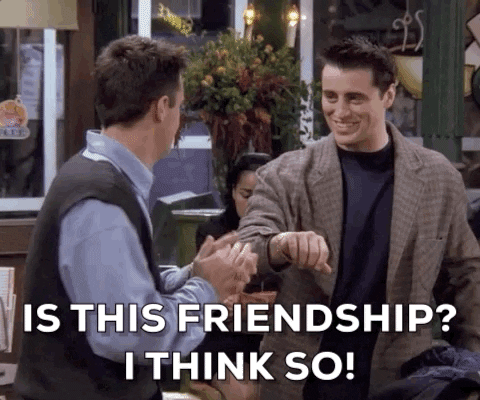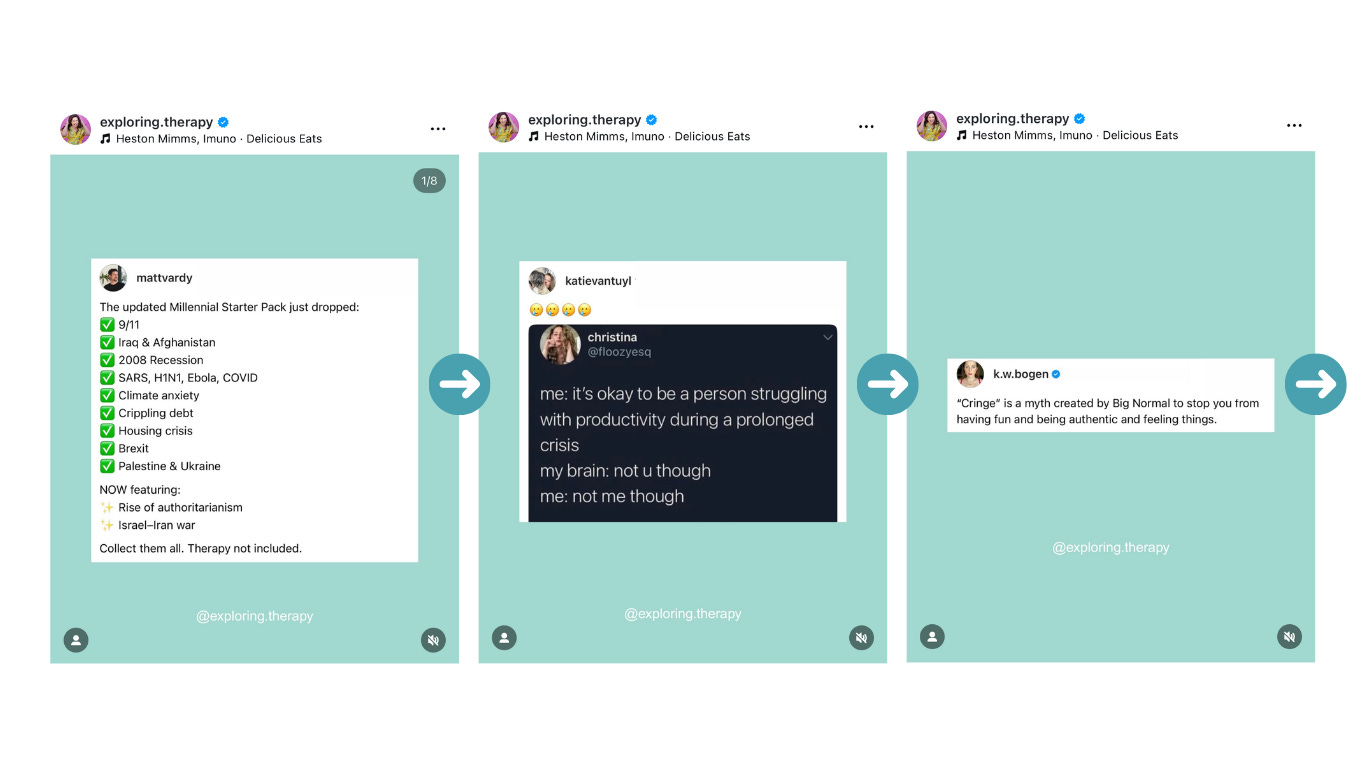The friendship mistakes we don't see coming (until it's too late)
For anyone who's ever wondered why some friendships last and others quietly fade away
Alice (name changed) was the rare friend who could share a tiny dorm room with you and somehow make it feel spacious. She was my ride-or-die, my automatic plus-one to everything, the person I just assumed would be standing next to me at my wedding someday. I remember countless nights where we’d stay up late talking about anything and everything. You know that friend who feels like family? That was Alice.
The shift didn't happen overnight, which is probably why I didn't see it coming.
I started working as a hospitality pastor at a large church in LA, and suddenly my life became a blur of meetings, events, coffee dates with parishioners, and prayer groups that ran late. I was pouring myself into everyone else's spiritual and emotional needs, thinking I was doing important work. And I was, but I was also doing something I didn't realize: I was forgetting to respond to Alice's texts.
Not on purpose. I'd see her message, think "I'll respond after this meeting," and then three days would pass. I assumed she'd understand because, well, she was my Alice. Of course she'd get that I was busy saving souls (or whatever).
Until two years later, when she finally told me the truth: she'd basically given up on our friendship and had been harboring resentment toward me the entire time. Two entire years of feeling forgotten while I was completely clueless.
I felt physically sick. Here I was, professionally helping people navigate relationships, and I'd let my most precious friendship slowly starve while I wasn't looking.
Here's what I've learned about friendship the hard way: it's not the big gestures that make or break it. It's the tiny, consistent habits that either keep people close or let them slowly drift away. And most of us have no idea which habits we're practicing until it's too late.
As a therapist, I've watched countless people struggle with loneliness, not necessarily because they can't make friends, but because they aren’t intentional about keeping them. They're often shocked and confused when friendships fade. "We were so close," they'll say. "I don't know what happened."
But when we dig into it, there's always a pattern. Small habits that either nurture connection or quietly starve it.
Today, I want to talk about the friendship habits that either keep people close or slowly push them away, often without you even realizing it's happening.
The friendship myth that's ruining everything
We have this idea that good friendships should be effortless. That if you have to "work" at a friendship, maybe it's not the right fit. But this is like saying if you have to water a plant, maybe it's not meant to survive. (And honestly, if that logic worked, my houseplants would have given up on me years ago.)
Real talk: every meaningful relationship in your life requires some level of intentional care. Not exhausting, complicated maintenance, but conscious, ongoing attention.
The friends who stay aren't the ones where everything comes naturally. They're the ones where both people keep choosing to show up, even when life gets messy and complicated and full.
Living in Lisbon has taught me something beautiful about friendship. As a foreigner, it took me a while to make Portuguese friends, and now I understand why.
The Portuguese have an incredible way of maintaining lifelong connections that honestly puts the rest of us to shame. They're fiercely loyal and remember to follow up on the little things. They understand that friendship means doing life with someone through the ups and downs, treating it like something sacred worth protecting.
Not every acquaintance becomes a friend here. Their higher standard for friendship means they're selective about who they get close to. My Portuguese friends will casually mention hanging out with someone they've known since they were three, and it's not rare or special, it's just a Tuesday.
Watching them has made me realize that friendship longevity isn't about luck or compatibility. It's about treating people like they matter consistently, not just when it's convenient.
But what does "treating people like they matter" actually mean in practice? And more importantly, what are we doing that makes people feel like they don't matter—even when that's the last thing we intend?
The habits that quietly kill friendships
1. Only reaching out when you need something
We all have that friend who only calls when they need advice, want to vent, or need a favor. Every conversation becomes emotional labor. There's no lightness, no reciprocity, no joy. (You know, the friend who treats you like an unpaid therapist. And trust me, as an actual therapist, I can tell the difference.)
If every interaction with you feels like work, people will start avoiding your calls. Not because they don't care about you, but because they need relationships that give energy, not just drain it.
Check yourself: when was the last time you reached out to a friend just to share something good? To ask about their life? To make them laugh? Friendship can't survive on crisis alone.
2. Assuming they'll always be there
The most dangerous assumption in friendship is permanence. That your college roommate will always be close, no matter how long it's been since you talked. That your work friend will stay connected even after you change jobs. That people will wait indefinitely for you to make time.
But relationships don't run on auto-pilot. They need fuel. And the fuel is attention, effort, and time. (Shocking, I know. It's almost like friendship follows the same rules as every other good thing in life.)
The friends you've lost touch with? Chances are there was no dramatic ending. You both just got busy and assumed you'd reconnect later. But "later" has a way of becoming "never" if nobody makes the first move.
3. Getting competitive instead of supportive
Sometimes your friend's success pokes at your own insecurities. They get engaged while you're single. They buy a house while you're still saving. They land the dream job you wanted.
The friendship-killer isn't having those feelings, it’s pretending you don't while quietly pulling away. Jealousy creates invisible distance that's hard to name but very real.
The better move is to notice the comparison, ask yourself what it's pointing to in your own life, and then choose to be genuinely happy for them anyway. A good therapist can help you unpack what’s coming up for you if you can’t get out of your own head. The (sometimes challenging) challenging thing to remember: Their win doesn't take anything away from you. But your resentment can take away the friendship.
4. Waiting for them to do the work
"I'm always the one who calls." "They never reach out first." "If I didn't text, we'd never talk."
Maybe that's true. Maybe you are doing more of the initiating. But keeping score in friendship is a losing game.
Some people are natural initiators, others are natural responders. Some people show love by planning, others by showing up. Instead of tallying who does what, notice whether the person responds with warmth when you reach out. Do they make time when you ask? Do they seem happy to hear from you?
If yes, then they do care, they just show it differently than you do. If it’s feeling really imbalanced, it might be worth speaking up and asking for change.
5. The slow fade
The most common way friendships end isn't with a fight, it's with silence. You keep meaning to text. They keep meaning to call. You both get busy. The silence gets heavier. Eventually it feels too awkward to break, so you don't.
The only way to stop the slow fade is to be the one who sends the uncomfortable text: "Hey, I know it's been forever, but I miss you. Want to catch up?"
It's vulnerable. But most people are relieved when someone finally breaks the silence.
One thing I’ve learned from my longest friendships is that they’re like an accordion - there are times when things feel closer and times when they feel further away. If both people genuinely trust that the other person is there for them, they’re better able to ride out a season of distance.
The habits that actually keep friendships alive
1. It really is the little things
The strongest friendships I know are built on “micro-moments”, those little messages that serve no purpose except to say "you crossed my mind.” It's the photo of something that reminded you of them. The "saw this and thought of you" meme. The "how was that thing you were worried about?" follow-up. These tiny moments of connection are like vitamins for friendship. Individually, they don't seem like much. But over time, they add up to something essential.
Most people wait for a reason to reach out. A birthday, a crisis, a specific thing to ask. But the friends who feel closest are usually the ones who text you about absolutely nothing, and somehow, those nothings mean everything and become the glue that keeps the bonds of friendship intact. (Shoutout to the friend who sends me TikToks of dogs doing weird things. You know who you are.)
Your homework: Pick one friend right now and send them something small. A photo, a memory, a random thought. No agenda. Just connection.
2. Remember the small stuff (and follow up on it)
When someone tells you about their job interview next Tuesday, put it in your calendar. When they mention they're nervous about a family dinner, text them the night before. When they're excited about something, ask how it went.
This isn't about having a perfect memory, it's about being intentional with your attention. The people who feel most loved are usually loved on purpose.
Recently, I’ve started keeping a simple note in my phone for each close friend with things they've mentioned recently, or just things that feel important. Stuff like “Liz only loves the Pride and Prejudice with Colin Firth, or Abi loves matcha with oat milk.” It feels a little mechanical at first, but there's nothing mechanical about the way someone's face lights up when you remember something that mattered to them. (Plus, let's be honest, my memory is not what it used to be, and mama needs to write stuff down or else it’s not getting remembered.)
3. Show up for their joy (not just their pain)
We're good at supporting friends through breakups, job losses, and family drama. But we're surprisingly bad at celebrating their wins with genuine enthusiasm.
When your friend gets the promotion, lands the date, buys the house, or finally launches that side project, celebrate them like it's your full-time job. Be the friend who brings champagne to good news, who texts in all caps about their achievements, who makes their success feel like a party. Recently some friends got me a cake and champagne to celebrate 50k followers on my Instagram, and I was super touched because I am normally quite bad at stopping to celebrate my successes. Needless to say, I’ll never forget it.
As they say: "A sorrow shared is a sorrow halved, and a joy shared is a joy doubled"
4. Have the awkward conversations
The friendships that last aren't the ones without conflict, they're the ones where people are willing to talk through the weird stuff instead of letting it fester.
When something feels off, say something. Not with drama or accusations, but with care. "Hey, I've been feeling a little distant lately, and I wanted to check in." "I think I might have said something wrong the other day, can we talk about it?" Or my new favorite, “I need to have a hard conversation with you.”
Listen, I know conflict can feel hard. No one wants to have the hard conversations. But remember: most friendships don't end because someone said something hurtful. They end because no one was brave enough to have the repair conversation afterward.
5. Make time even when it's inconvenient
The friends you feel closest to aren't necessarily the ones you see most easily. They're the ones who keep making effort even when schedules get crazy.
This might mean putting friendship dates on your calendar like you do work meetings. It might mean sending voice memos during your commute instead of waiting for the perfect time to catch up. It might mean saying yes to plans even when you're tired, because you know connection matters more than comfort. The best friends are the ones who have grace for us even when we show up imperfectly. They know we’re trying our best.
The twenty-minute coffee catch-up often means more than the three-hour dinner you keep planning but never schedule. The New York Times even explored the power of an 8-minute phone call: yes, friendship can be this easy!
One last thing
The people with the deepest, longest friendships aren't the luckiest or the most naturally social. They're the ones who understand that connection is a practice, not a feeling.
Not because it's easy, but because some things are worth the effort.
PS: I made you a short voice note
If the world feels a little too loud right now, here’s something gentle for your nervous system. I recorded a short voice note (under 5 minutes) to remind you that you’re not alone, guide you through a grounding breath, and offer a few words your heart might need today. You can listen to it here:
Questions for reflection
Looking at your closest friendships, what small habit has kept you connected?
Is there a friendship you've been meaning to tend to but keep putting off? What's one small thing you could do this week?
Think of a friendship that faded away—what habit might have kept it alive?
When you're going through something good, who are the people who celebrate with you? How can you be that person for others?
What's one small text you could send right now to someone you care about?
Who is someone you could call to have an 8 minute conversation with?
I'd love to hear from you: what's one friendship habit you want to start practicing? Hit reply and tell me, I read every message.
With love and intentional connection,
Therese 💜
📲 Your weekly dopamine boost
Every week I share the memes that made me genuinely laugh and helped me get through the hard days. Here’s this week’s selection, especially curated with you in mind. Follow me on Instagram so you don’t miss a single drop of dopamine. 🫶🏼
Craving more?
Come hang out. No pressure, no perfection. Just real conversations about what it means to enjoy your life—exactly as it is.
Connect with me on my Instagram or check out my website for more.
Need help now?
These resources can help:
Suicide Prevention Lifeline | SAMHSA National Helpline | The Trevor Project







